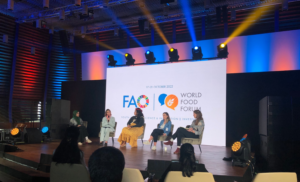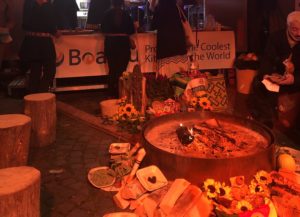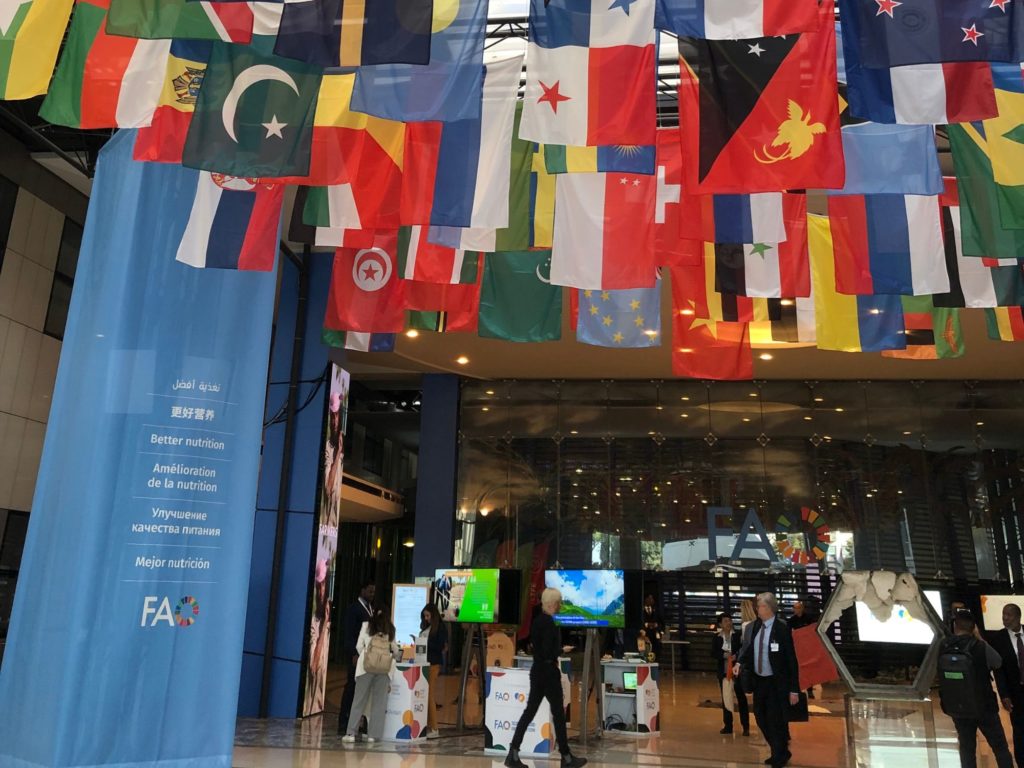SIANI attended the second World Food Forum (WFF) Flagship event, which took place at the FAO headquarters in Rome from 17 to 21 October 2022. The youth-driven Forum brought together more than 2000 people in Rome and more online, representing research, governments, the private sector, civil society and much more. The theme for this year’s conference was “Healthy Diets. Healthy Planet.”, with many dialogues closely aligning with SIANI’s new focus on sustainable, inclusive and rights-based food systems with focus on youth, Indigenous peoples and smallholder farmers.
Meaningful youth inclusion
Policy must create an enabling environment for youth to take part, which is a theme that SIANI will continue to work closely with in 2023. The Youth Forum gathered young people from around the world, pushing for policy change. Seminars and panels throughout the week discussed what meaningful youth inclusion and negotiation actually entails, and spoke up about their priorities. Young participants highlighted funding, representation and capacity building as some of the key priorities ahead. Guidance and mentorship from senior people in communities and in global organisations were also pointed out as crucial enablers for youth inclusion in policy and practice. Yet, the inclusion of young people still appears challenging, and many raised the issue of accessing policy forums in the first place – the World Food Forum included – due to financial, travel or visa limitations. As a way to foster youth participation and learn from young people taking action in food systems today, SIANI hosted a side event at WFF, with four young entrepreneurs and researchers.

Policy input from young scientists, civil society representatives and individuals
A large part of the agenda involved so-called Youth Assemblies and brought diverse young people together to discuss youth in agri-food systems from regional and thematic perspectives. The discussion at the Forum will feed into upcoming policy processes, including COP27, the UN Water Conference, as well as the latest guidelines on youth engagement and employment, endorsed by the Committee on World Food Security (CFS) in October 2022, in which SIANI also took part.
A youth policy group and a young scientist group were also invited to the Forum, both of which will take the discussion further in the future.
Indigenous food lab
Another theme for SIANI’s future work is the recognition of livelihoods and rights of forest communities, Indigenous peoples and natural resource dependent poor. At the WFF, the nomadic kitchen BOAŠŠU Food Lab were present at FAO’s headquarters in form of a tent where Indigenous chefs and representatives discussed the transformation of our food systems, youth action and women’s empowerment. Chefs also demonstrated cooking from various Indigenous traditions. They invited the participants to taste everything from reindeer soup from the Sámi people in Norway, to sourghum salads prepared by Chef Mokgadi Itsweng from KwaZulu-Natal in South Africa. The World Food Forum also celebrated the launch of the Coalition for Indigenous Peoples’ Food Systems, recognising that Indigenous knowledge is key to the transition to sustainable food systems and that Indigenous people are essential to Agenda 2030.

Future engagement of youth in agri-food systems
The closing ceremony of the World Food Forum highlighted the need to keep the momentum going. The work initiated during the flagship event in Rome must continue. There is a need to form sub-groups and clusters committed to taking proposed ideas into action and impact. Local organisations must be involved to enable change in local contexts, and youth must be part of all forums facilitated globally. Speaking on impact – the organisers announced that in 2023, the Forum will move from ideas to impact by launching the WFF Incubator to bring young voices into policymaking, foster science-based innovations and enable inclusive investments across the globe.
